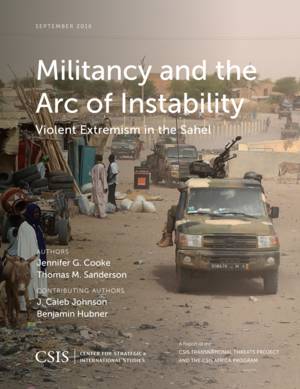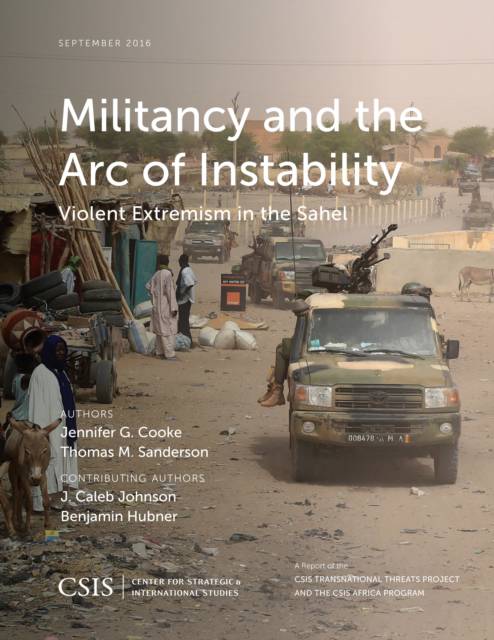
Bedankt voor het vertrouwen het afgelopen jaar! Om jou te bedanken bieden we GRATIS verzending (in België) aan op alles gedurende de hele maand januari.
- Afhalen na 1 uur in een winkel met voorraad
- In januari gratis thuislevering in België
- Ruim aanbod met 7 miljoen producten
Bedankt voor het vertrouwen het afgelopen jaar! Om jou te bedanken bieden we GRATIS verzending (in België) aan op alles gedurende de hele maand januari.
- Afhalen na 1 uur in een winkel met voorraad
- In januari gratis thuislevering in België
- Ruim aanbod met 7 miljoen producten
Zoeken
Militancy and the Arc of Instability
Violent Extremism in the Sahel
Jennifer G Cooke, Thomas M Sanderson
€ 64,45
+ 128 punten
Omschrijving
An arc of instability stretching across Africa's Sahel region, an area of strategic interest for the United States and its allies, is plagued by violent extremist organizations (VEOs). These organizations, including Boko Haram, al Qaeda, and other terror groups, have metastasized and present a serious threat to regional stability.
Specificaties
Betrokkenen
- Auteur(s):
- Uitgeverij:
Inhoud
- Aantal bladzijden:
- 36
- Taal:
- Engels
- Reeks:
Eigenschappen
- Productcode (EAN):
- 9781442279681
- Verschijningsdatum:
- 28/10/2016
- Uitvoering:
- Paperback
- Formaat:
- Trade paperback (VS)
- Afmetingen:
- 198 mm x 269 mm
- Gewicht:
- 90 g

Alleen bij Standaard Boekhandel
+ 128 punten op je klantenkaart van Standaard Boekhandel
Beoordelingen
We publiceren alleen reviews die voldoen aan de voorwaarden voor reviews. Bekijk onze voorwaarden voor reviews.









